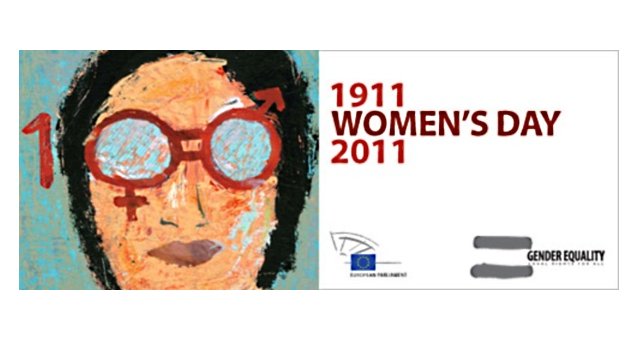Women’s rights one hundred years on: the fight continues in the EP’s FEMM Committee

[European Parliament, Brussels, 08 March 2011] Parliament marked the 100th anniversary of International Women’s Day (Tuesday 8 March) with a debate and vote on two resolutions tabled by the Women’s Rights Committee: one on gender equality and the other on female poverty. A third resolution, on reducing health inequalities, was also adopted.
In a special ceremony held on Tuesday to commemorate 100 years of campaigning for women’s rights, EP President Buzek said "There are too few women in the EP: 35% is not enough, even though this is slightly more than in national parliaments. It is up to national parliaments to ensure higher representation in the EP. Member States should therefore adopt relevant decisions and a legal framework to boost the presence of women in the EP".
European Commission President José Manuel Barroso, the Hungarian Presidency’s secretary of state for European affairs Enik? Gy?ri, EP Women’s Rights Committee chair Eva-Britt Svensson (GUE/NGL, SV) and speakers for Parliament’s political groups also took the floor.
Tackling inequality
The need to narrow the gender pay gap, to get more women in decision-making positions and to raise the female employment rate are among key points in the resolution accompanying the 2010 annual report on equality between women and men in the EU, drafted by Mariya Nedelcheva (EPP, BG) and adopted by 366 in favour, 200 against and 32 abstentions. The importance of better child care facilities and child-related leave is also highlighted.
If women’s employment, part-time employment and productivity rates were similar to men’s, GDP would increase by 30%, says the resolution.
Only 3% of major companies are chaired by a woman. Member States should therefore take effective measures, such as quotas, to ensure greater representation for women in major listed companies and on the management boards of companies in general, say MEPs, citing Norway as a positive example, followed by Spain and France.
Parliament also calls for binding targets to ensure equal representation of women and men in politics, saying further efforts must be made at EU, national, regional and municipal levels.
Enforce equal pay
The pay gap between men and women still averages 18% in the EU and even exceeds 30% in one Member State, noted MEPs, urging EU Member States to implement equal pay for equal work laws properly and calling on the European Commission to impose sanctions on those that fail to do so.
Eliminating poverty
Nearly 85 million people in the EU were living below the poverty line in 2008, and 17% of all women in the EU were living in poverty, notes the second resolution - on the face of female poverty - drafted by Rovana Plumb (S&D, RO).
Macroeconomic, social and labour-market policies should be reformed, to guarantee a minimum income as well as economic and social justice for women. All EU common policies should have a gender perspective, stresses the resolution, adopted by a show of hands.
Economic crisis could widen health inequalities
In a third resolution adopted today, Parliament underlines that everybody should have access to healthcare systems and affordable healthcare. The specific needs of vulnerable groups such as women, older patients, undocumented migrants, ethnic minorities, need to be taken better into account.
Life expectancy has been shown to vary across EU Member States by 14.2 years for men and 8.3 years for women (Eurostat figures for 2007 and 2010 respectively), says the resolution, which was drafted by Edite Estrela (S&D, PT) and adopted by 379 votes to 228 with 49 abstentions. Also within countries, groups of different education levels and social situations have widely differing health prospects.




